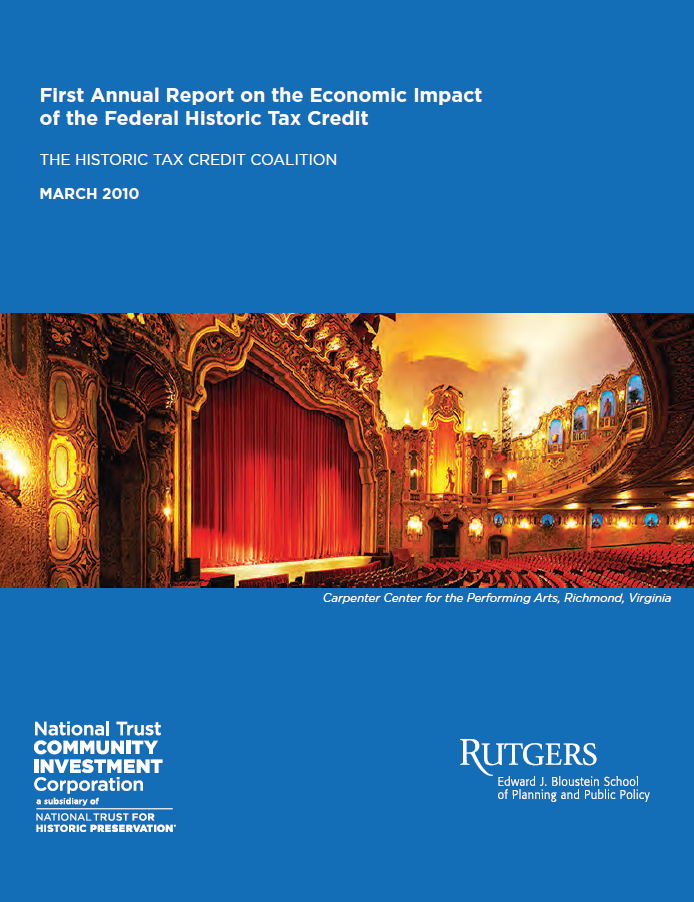This study examines the background and evolution of the federal historic tax credit (HTC) in the United States; presents quantitative and qualitative information regarding the economic and other benefits of the federal HTC (e.g., providing affordable housing and spurring downtown revitalization); and explores ways in which the current federal HTC—a strong program in its own right—can be more flexibly applied in the future so as to realize yet greater production and ensuing benefits.
As shall shortly be detailed, the federal HTC (technically, Internal Revenue Code [IRC] section 47) was initiated in the late 1970s and aimed to provide a financial lift to realize the rehabilitation of the nation’s historic properties—a challenging goal. The program is administered by the National Park Service (NPS) working collaboratively with State Historic Preservation Ocers (SHPOs). The federal HTC has minimum investment and numerous other threshold requirements. There is strict oversight to ensure that program goals are met and a multi-step application process is required encompassing “Part 1” (evaluation of the historic significance of the property), “Part 2” (description of the rehabilitation work), and “Part 3” (request for certification of completed work).
The analysis for this report was conducted by the Rutgers University Center for Urban Policy Research (CUPR1) under the guidance of Drs. David Listokin, Michael L. Lahr (and CUPR Research Associates Charles Heydt and David Stanek), and with the assistance of John Leith-Tetrault and Anna Klosterman of the National Trust Community Investment Corporation (NTCIC), the historic tax credit subsidiary of the National Trust for Historic Preservation. This study was commissioned by the Historic Tax Credit Coalition (HTCC), a public policy advocacy organization whose members represent historic tax credit industry participants including investors, syndicators, developers, preservation consultants, tax attorneys and accountants.
